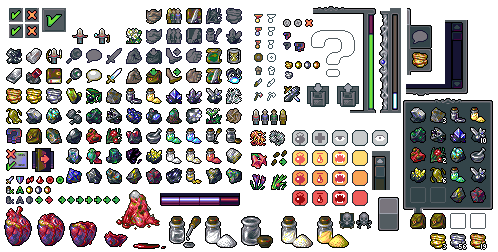
Blue-Sky Designing and Spreadsheet Specific are game industry terms and I'll give you the definitions in my own words. Before I do that I need to make sure I'm not misrepresenting myself. I'm not a professional game designer. I'm just a guy having fun and learning by doing. These terms are things I've learned by reading and talking to experts.
Blue-Sky Designing
In the broadest sense, Blue-Sky Design is designing without thinking about real-world limitations. With the broad definition, you don't care what something might cost to produce; you're not concerned about the computer power that might be needed to actually play the game. There are no limitations to where you can allow your imagination to carry you.
In a more limited sense, Blue-Sky means designing without thinking of all the low level systems and assets. It's pure ideation and brainstorming to help define things that might be awesome for players to experience in the context of your known limitations! I'll be using the more limited definition.
Why use the limited definition, you might be asking. I've already determined some limitations for the early game of SFEOS, and frankly, we want to have a playable game in the near future. Because we are starting with a small team with limited resources, the first version of this will have to be developed with that in mind. Fear not reader! It will be awesome because we are committed to creating an awesome game to experience. Ok, I hope I'm not setting expectations too high now. More on this in the next post.
Spreadsheet Specific
Once you have got the ideas of your potential awesome game pretty well defined, but before you can start developing the game, you have to get things defined in specific ways.
Games are filled with models that are abstractions of reality, or of our interpretations of fantasy. In the Dungeons & Dragons of my youth for example, a character had attributes that represented specific things about him. Strength, intelligence, wisdom, dexterity, constitution and charisma. Those attributes could start anywhere between 3 and 18 (3d6). Those attributes were used when my character tried to do things. Those attributes and the character itself would be considered spreadsheet specific things.
The Challenging Part
Challenging, but not too challenging, is what we are shooting for. Designing and developing should be something that puts us in a state of optimal experience (i.e. Flow). I've written about this before, but in case you haven't read my previous posts, I'll summarize again.
In Mihaly Csikszentmihalyi's (mi-ha-yee cheeks-sent-me-high) book called Flow, he talks about the psychology of optimal experience. It is the state where a person is so immersed in the activity they are doing, that they completely forget about the world around them. They look up after hours, wondering where time went. In times of Flow people typically experience deep enjoyment, creativity, and a total involvement with life.
According to MC, Flow is triggered when the challenge set before you isn't so hard you'll get frustrated, but where your skill level is still developing so you don't get bored.
From my previous post: Forget the New Year's Resolutions, Instead Try a 30 Day Challenge
So we have to get from Grand Idea to Spreadsheet Specific before we can develop. At least that is how I'm going about it. Next I'm going to discuss the Grand Idea and try to get you all up to speed on where we are heading. Also I'll have a few updates to the team roster to tell you about (no full-time devs, but offers to help when things start churning more).
To be continued...
This is great. I've been including some of your posts in my games roundup at @gametokenstech . I'll be sure to add this one to the next one!
Thanks a ton Ciel! It's been great getting to know you all in the community. I hope we can learn and work together in the future.
Verry good post thanks you so much
You're welcome. I hope it's helpful.
Verry good post